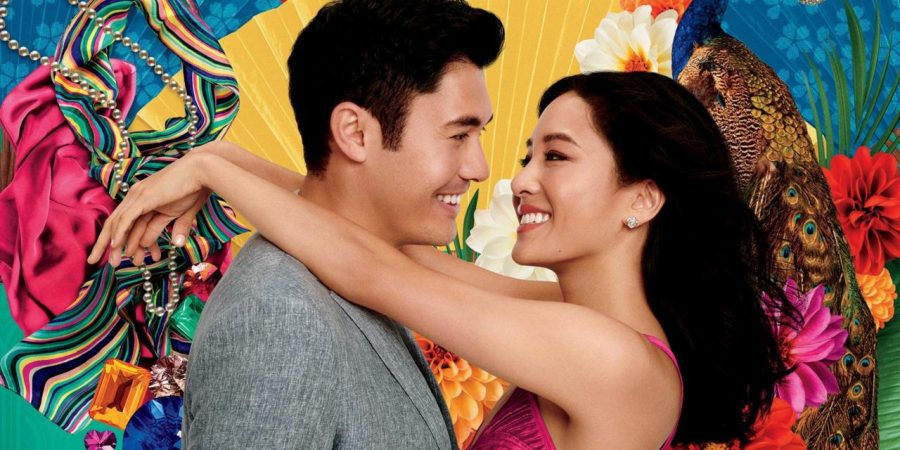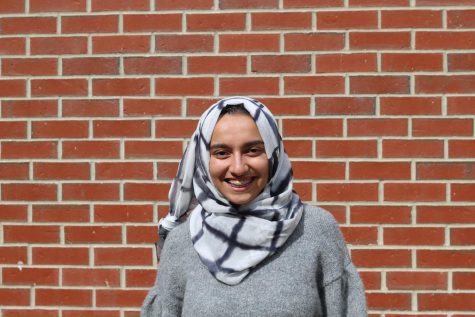New romantic comedy ‘Crazy Rich Asians’ sets inclusive precedent for movies to come
Courtesy Warner Brothers Studios
The romantic comedy “Crazy Rich Asians” sets a precedent for Hollywood to be inclusive.
September 27, 2018
As an Asian American, I have been praying for a movie like “Crazy Rich Asians” for longer than I can remember. With an all Asian cast and compelling storyline, every element of this movie made it a perfect romantic comedy.
“Crazy Rich Asians” was everything that I had hoped for and more from the witty and relatable dialogue, to the characterization of each person in the movie, to the stellar acting, to the hilarious lines, and of course the representation of Asians in American media. This movie was as successful as it is because of the dynamic array of characters. Each character is so well developed that without one, the movie wouldn’t be the same.
Through actress Constance Wu’s character, Rachel Chu, I could see so much of myself, and I think millions of other Asian Americans who watched the movie felt just the same. I can’t say I know what it feels like to go to Singapore to meet your boyfriend’s (crazy) rich Asian family, but I can say that I resonated with a lot of how she felt throughout the experience.
Each character in the movie is so special because they represent different personalities. Peik Lin, played by Awkwafina, is the failed business major who moved back home to live with her parents. Her mother, played by Tan Kheng Hua, is the overly friendly auntie who wants to show off her house and make lots of food for her daughter’s friend. And who could forget Peik Lin’s father, played by Ken Jeong, as the dad who tries to “relate to the youth” with his hip phrases and trying to inject himself into every conversation.
Rachel Chu’s mother is a hardworking single mom who raised her daughter alone. The traditionally conservative Chinese society in Singapore disapproves of this. “Does your mother host company? Oh wait, she’s single…” The disapproving murmurs of the aunties at the party were something that most Asian Americans have experienced. This was so crucial to the plot because it just was another example of how this movie brought the two worlds of their modern and traditional culture together.
Having been characterized as “different” and the “Chinese- American” by their traditional and conservative society, Rachel was made to feel separated from her own culture. Rachel was constantly being hit with remarks or comments about her not being a part of them. Her strength and resilience is what shows that she did not need their approval, however, to know who she was.
Just like Rachel, speaking minimal Mandarin whilst understanding all of it is something I can relate to in my own way. I’ve known how to speak Urdu, the language my family speaks, since I was a baby. But somehow, my relatives back in Pakistan still manage to tell me that I’ve been “Americanized” and that I have lost parts of my culture.
I belong to a culture that adapted its own sense of Hollywood to showcase their own culture: Bollywood. I am privileged to say that if I go to the movies at any given time, there is a movie playing in my native language. But this goes far beyond just seeing a Bollywood movie. I could never relate to them as much as my parents would or as much as my relatives who grew up in India and Pakistan. Their day to day activities and life experiences were quite different from the life I lived in America.
This movie was so important for Asians or people who have immigrant parents. Our heritage traces back to a culture that we know and embrace at home, however, we were raised in America, so we are seen as “different” by relatives from other parts of the world.
Growing up I’ve always known that I was Pakistani American. That was my identity. It was a large part of how I presented myself. But as I grew older, a sense of “different” grew in me: not being American enough or Asian enough.
Rachel Chu’s long lost college roommate, Peik Lin, said it best. “You’re yellow on the outside, white on the inside. You’re a banana.” This was such a memorable statement to me because it perfectly described how I feel about my identity. I may look Asian on the outside and I may feel closely connected to my culture, but I am American and will always be a mix of both. Having lived in America all of my life, I’ve adapted so many parts of it, but I will never let myself lose my Asian heritage.
Pakistani American is my identity. No one, not the aunties, not society, not anyone, can tell me who I am. As tv host and Twitter personality Chrissy Teigen put it, this movie was powerful for her because her two year old daughter was able to watch a mainstream Hollywood movie and be able to recognize someone who looked like her race. I hope that Hollywood continues to carry on in this positive direction of representing minorities who have been missing from movies for hundreds of years.










